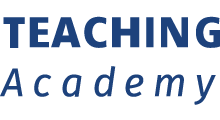Brad Johnson is Professor of psychology in the Department of Leadership, Ethics and Law at the United States Naval Academy, and a Faculty Associate in the Graduate School of Education at Johns Hopkins University. A clinical psychologist, he speaks and consults with organizations and universities around the globe on creating positive mentoring cultures. Dr. Johnson is a fellow of the American Psychological Association and recipient of the Johns Hopkins University Teaching Excellence Award. He has served as Chair of the American Psychological Association’s Ethics Committee and as President of the Society for Military Psychology. Dr. Johnson is the author of 130 journal articles and book chapters, and 13 books, in the areas of mentoring, professional ethics, and counseling. His most recent books include: The Elements of Mentoring 3rd edition (2018, with Charles Ridley), Athena Rising: How and Why Men Should Mentor Women (2016, with David Smith), On Being a Mentor: A Guide for Higher Education Faculty 2nd edition (2015), and The Oxford Handbook of Education and Training in Professional Psychology (2014, with Nadine Kaslow). His work has been featured in the Harvard Business Review, The Atlantic, and the Chronicle of Higher Education.
LECTURE:
“The Art (and Science) of Outstanding Mentorship in Higher Education”
This keynote session draws directly on Dr. Johnson’s and others’ research to address the unique characteristics and contours of mentoring relationships. Topics include distinctive elements of mentorships, the benefits of mentoring, and recent evidence about frequency and efficacy of mentoring in higher education. The presenter will also address obstacles to mentoring, honest costs to mentors, and the challenges of evaluating and building mentoring competence among faculty. Some lingering tensions in the mentoring literature will be addressed, including the relative benefits of formal versus informally evolving relationships and the value of a primary mentor versus a developmental network of career helpers. Finally, this keynote will offer some mentoring strategies for both streamlining faculty time and amplifying the prevalence of mentoring in an institution. These strategies are designed to further a self-perpetuating culture of mentorship at National University of Singapore.
WORKSHOP:
“Becoming a Master Mentor: A Workshop for Faculty”
This practical workshop provides evidence-based rules of engagement for developing high-impact mentoring relationships in Higher Education. Topics include the interpersonal qualities and behavior strategies of highly-effective “Master” mentors, techniques for forming effective mentorships, and key ethical obligations and considerations. The habits and behaviors of truly effective mentees will also be covered. There will be a strong focus on using mentorships to leverage inclusion and diversity with particular focus on gender and culture. Cultural humility and egalitarian values in the context of mentoring relationships will be emphasized. This session is also dedicated to helping National University of Singapore thought leaders think in an informed way about the key ingredients to a strong mentoring culture. This workshop will include the opportunity to practice some vital mentoring techniques.



